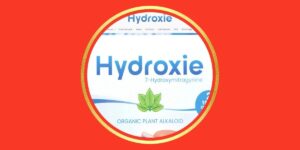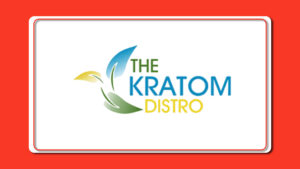7-OH = Schedule I? The FDA’s War on Kratom’s Most Potent Compound
The US Food and Drug Administration has taken a bold step towards 7-OH, which is kratom’s most potent alkaloid. 7-OH is a strong compound that is responsible for kratom’s pain-relieving properties, which benefits thousands of people all around the world.
The Drug Enforcement Administration (DEA) classifies 7-OH as a “controlled substance” and has taken immediate action by sending warning letters to seven companies that are engaged in illegal marketing of products with 7-OH.
While disrupting consumers, manufacturers, and suppliers, they have also conducted a high-profile press conference, including Health Secretary Robert F. Kennedy Jr., FDA Commissioner Marty Makary, and U.S. Senator Markwayne Mullin. They outlined 7-OH risk, its comparison to morphine, and how the government is protecting public health by restricting these potent opioid-like products.
This move has far-reaching consequences, not just for manufacturers and vendors, but also for millions of consumers who rely on kratom and its derivatives to deal with multiple health problems. 7-OH makes them feel better by providing relief and relaxation.
A list of questions arises after the HSS press conference. People are asking why only 7-OH, but not kratom? How will it affect my business? What should I do as a consumer? Today it’s 7-OH, tomorrow it will be kratom. Is there any better solution?
To sum up the stance of the FDA and 7-OH users, we have compiled this article, including the effect of the FDA’s crackdown on 7-OH businesses and consumers.
Why Are HHS and FDA Taking Action Against 7-OH Products?
The increasing popularity of 7-OH products in the US has raised concerns over their potential risks. The US Department of Health and Human Services (HHS) and the FDA are taking regulatory action against 7-OH products.
7-Hydroxymitragynine (7-OH) is a terpenoid indole alkaloid found in the plant Mitragyna speciosa, commonly known as kratom. First identified in 1994, it is a natural derivative of mitragynine, which is present in kratom leaves. Like mitragynine, 7-OH binds to opioid receptors, but studies indicate that 7-OH has a significantly higher binding potency.
The agency quotes the stance of the FDA on kratom and the lack of its approval for any 7-OH products, mainly the increasing varieties like gummies, shots, and vapes.
Key Takeaways from the Latest Announcement
The HSS explains how 7-OH is a concentrated product that is different from traditional kratom leaf extract. They are calling it a stronger alkaloid that affects the brain and body. US officials also compare its dangers to morphine. The FDA is mainly concerned about products appealing to American youth.
Different 7-OH flavored products are spreading in America like wildfire as they are widely available online in gas stations, vape shops, and corner stores. The HSS secretary said that it’s their mission to make America healthy again and protect the health of nations’ youth at all costs. The recommendation is proposed to restrict the 7-OH product after a thorough research by the FDA.
Ref: Press Release HSS
What does this mean for Consumers?

Consumers are worried about restrictions on 7-OH products, as thousands of people are using this to deal with chronic pains and arthritis, and other conditions.
We have curated a list of scenarios if the DEA schedules 7-OH as a controlled substance.
1. Potential Loss of Access to 7-OH Products
If the authorities schedule 7-OH and restrict its products, it could become illegal to buy, sell, or possess without a prescription. All 7-OH products, including shots, gummies, and vapes, will disappear from stores and online marketplaces. We have already seen the FDA sending warning letters to 7 online sellers in June 2025.
2. Increased Scrutiny of Kratom Products
FDA clears that they are only targeting 7-OH, not whole kratom leaf extracts, but consumers are worried as it might be the beginning of restrictions to other kratom products, such as enhanced blends and stronger strains like red vein strains. They are also feared for wellness products that contain trace amounts of 7-OH. People are uncertain about where this aggressive enforcement ends.
3. Safety Concerns and Black Market Risks

Reddit Thread Link:
When authorities ban a popular product, it often leads to underground sales, which increase the risk of contaminated and mislabelled products. Without regulation of products, consumers will turn to unverified sources that might be harmful.
What will happen to businesses?
Businesses will face a huge setback. FDA is determined to regulate 7-OH and other high-potency compounds. Consumers could lose access to the products they are using while businesses face legal and financial turmoil. It will be a major turning point for the entire kratom industry.
1. Immediate Legal and Financial Risks
The FDA has already issued warning letters to several companies. After new regulations, businesses will face seizures of inventory, fines, and legal problems.
2. Need for Rapid Product Reformulation
Businesses will need to start reformulating their products, liquefying inventory, and preparing themselves for stricter regulations by hiring a legal consultant.
To stay compliant, vendors will need to remove 7-hydroxymitragynine from their products and stick to standard kratom extracts, as high potency and labeling will be under much scrutiny from the FDA.
3. Market Uncertainty and Financial Losses
Some companies solely rely on 7-OH products. It will be a huge setback for them as the revenue drops. The kratom industry could also face increased regulatory pressure, making it harder to operate.
What’s Next?
The DEA’s rule-making is in process. They will review the FDA recommendation, open a public comment period, and then issue a final rule on scheduling 7-OH as a controlled substance.
Potential Timeline:
- Proposed Rule: September–October 2025
- Public Comments Close: November–December 2025
- Final Ban: January–March 2026 (if no delays)
Vendors have around 6-9 months to reformulate products, secure alternative ingredients, and consult legal counsel. Consumers need to find alternatives to the products they are using while also advocating more for kratom.
More Readings For You:


































